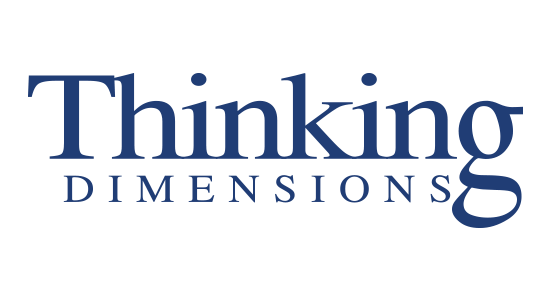I often hear, "we knew that this would happen at some point, but …" Worst of all, in such an scenario people also state that they knew why such future event would occur! We all hope and believe that nothing will go wrong in respect of the things we plan and do, and this belief in our own judgment drives us to believe in our own actions, and rightly so.
The enormous caveat in our thinking is, however, that whilst we may have perfect reason to believe that what we planned and did is perfect, the effect of third parties and external events are not controlled by us. This failure to recognize external influences is our stumbling weakness.
It is perfectly true that attempting to predict an entire set of future events is nearly impossible, but we can, when focusing sharply on decision and planned actions, in that narrow space more that reasonably estimate what external events may affect us. Building a bridge can be delayed due to unforeseen material shortage. Whilst travelling transport may stop unexpectedly due to adverse weather . A key staff member may elect to accept a new job offer due to head hunting. Name it and it can probably occur.

If we should be so proactive that we think that all external events will occur, we will no doubt be so paranoid that we will not take any action at all. Therefore, only potential future events with a reasonably high prospect of occurrence and devastating effect warrant being attended to, the rest we will have to mange as part of daily life when they occur.
KEPNERandFOURIE RiskWise offers 3 tools to ensure that you can, with little effort, ensure that you will not need to remind yourself in future that, "you should have known that .........Will happen!”
- The Standard RiskWise tool allows for a comprehensive analysis of events that could go wrong, the reasons why this could occur and how the high probability future events as well as events that will be devastating, can be planned for. Planning naturally must involve (1) an attempt, if such is feasible, to prevent the event from occurring, and (2) should occurrence be unavoidable, contingent actions that can be proactively implemented to mitigate the negative effects of an occurrence.
- The RiskWise Continuity Planning Tool is extremely useful to evaluate an existing process, a set of future sequential actions or a project with. This tool assiste you in evaluating the risk associated with key inputs and outputs, hence allowing planning to ensure continuity of planned workflow. It is less onerous than a ‘Failure Modes and Effects Analysis’ and is easy and quick to use.
- RiskWise ‘Areas of Impact’ Assement is an ideal tool to review strategic plans and broad scenario’s we may venture in to. It allows fort the evaluation of the Risks in respect of a component and the benefits attached to same. In this manner we can determine if the risks we might expose ourselves to, is “worth it”.




